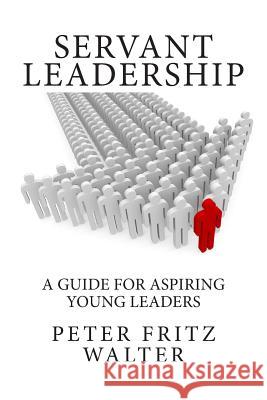Servant Leadership: A Guide for Aspiring Young Leaders » książka
Servant Leadership: A Guide for Aspiring Young Leaders
ISBN-13: 9781508871804 / Angielski / Miękka / 2015 / 296 str.
'Servant Leadership' presents a novel approach to understanding and training the new servant leadership approach for top and middle management audiences. This guide to servant leadership addresses college students who are looking for a way to prepare for their upcoming exposure to the corporate environment. Many of the ideas the author comes up with in this guide are non-standard, and the result of his own creative thinking. The author's approach is original in the sense that he has enriched and transformed the traditional leadership paradigm through basic elements of timeless wisdom, taken from Zen and the I Ching, thereby expanding the paradigm beyond the borders of the strictly Western corporate culture, adapting it for international, and particularly, Asian audiences. This book doesn't offer quick fixes for developing leadership skills. It presentsan approach to raise the awareness level of the whole of the person. The author contends that leaders must develop not only values like integrity and accountability, but must also expand their critical thinking ability, which is one quality of several for becoming accountable as a leader in the corporate or political world. To be critical means to question tradition and authority, in the first place; it means to look for realizing ourpersonal styleand cognitive preferences and to activate our heart, which according to newest HeartMath(r) research is essentially contributing to the sharpness of our cognitive apparatus, and thus a factor for right decision-making. The main focus of the guide is upon developing the broad-mindedness and the human qualities that make a servant leader being followed not because of obedience, but because of the willingness to share with him a personal growth experience that ultimately will be to the benefit of the organization as a whole. As uncanny as it sounds, but 2600 years ago, the Taoist sage Lao-tzu has described precisely the qualities of the servant leader in the Tao Te Ching with the laconic dictum that when the task is accomplished, and the leader had the right qualities in place, the people will say 'We have done it all by ourselves.' That such a form of leading is not child play, but requires self-discipline and years of practice, everybody will know who is familiar with the requirements of leading organizations in our time of global challenges."












